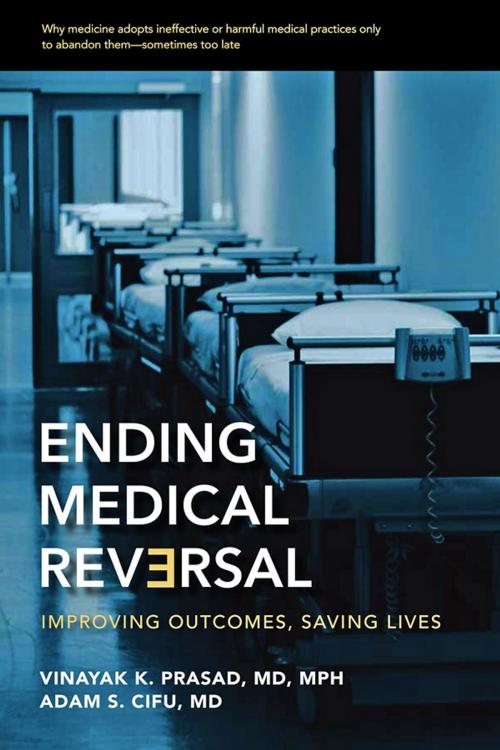Ending Medical Reversal
Improving Outcomes, Saving Lives
Nonfiction, Health & Well Being, Medical, Reference, Health Policy, Public Health| Author: | Vinayak K. Prasad, Adam S. Cifu | ISBN: | 9781421417738 |
| Publisher: | Johns Hopkins University Press | Publication: | November 1, 2015 |
| Imprint: | Language: | English |
| Author: | Vinayak K. Prasad, Adam S. Cifu |
| ISBN: | 9781421417738 |
| Publisher: | Johns Hopkins University Press |
| Publication: | November 1, 2015 |
| Imprint: | |
| Language: | English |
Medications such as Vioxx and procedures such as vertebroplasty for back pain are among the medical "advances" that turned out to be dangerous or useless. What Dr. Vinayak K. Prasad and Dr. Adam S. Cifu call medical reversal happens when doctors start using a medication, procedure, or diagnostic tool without a robust evidence base—and then stop using it when it is found not to help, or even to harm, patients.
In Ending Medical Reversal, Drs. Prasad and Cifu narrate fascinating stories from every corner of medicine to explore why medical reversals occur, how they are harmful, and what can be done to avoid them. They explore the difference between medical innovations that improve care and those that only appear to be promising. They also outline a comprehensive plan to reform medical education, research funding and protocols, and the process for approving new drugs that will ensure that more of what gets done in doctors' offices and hospitals is truly effective.
Medications such as Vioxx and procedures such as vertebroplasty for back pain are among the medical "advances" that turned out to be dangerous or useless. What Dr. Vinayak K. Prasad and Dr. Adam S. Cifu call medical reversal happens when doctors start using a medication, procedure, or diagnostic tool without a robust evidence base—and then stop using it when it is found not to help, or even to harm, patients.
In Ending Medical Reversal, Drs. Prasad and Cifu narrate fascinating stories from every corner of medicine to explore why medical reversals occur, how they are harmful, and what can be done to avoid them. They explore the difference between medical innovations that improve care and those that only appear to be promising. They also outline a comprehensive plan to reform medical education, research funding and protocols, and the process for approving new drugs that will ensure that more of what gets done in doctors' offices and hospitals is truly effective.















